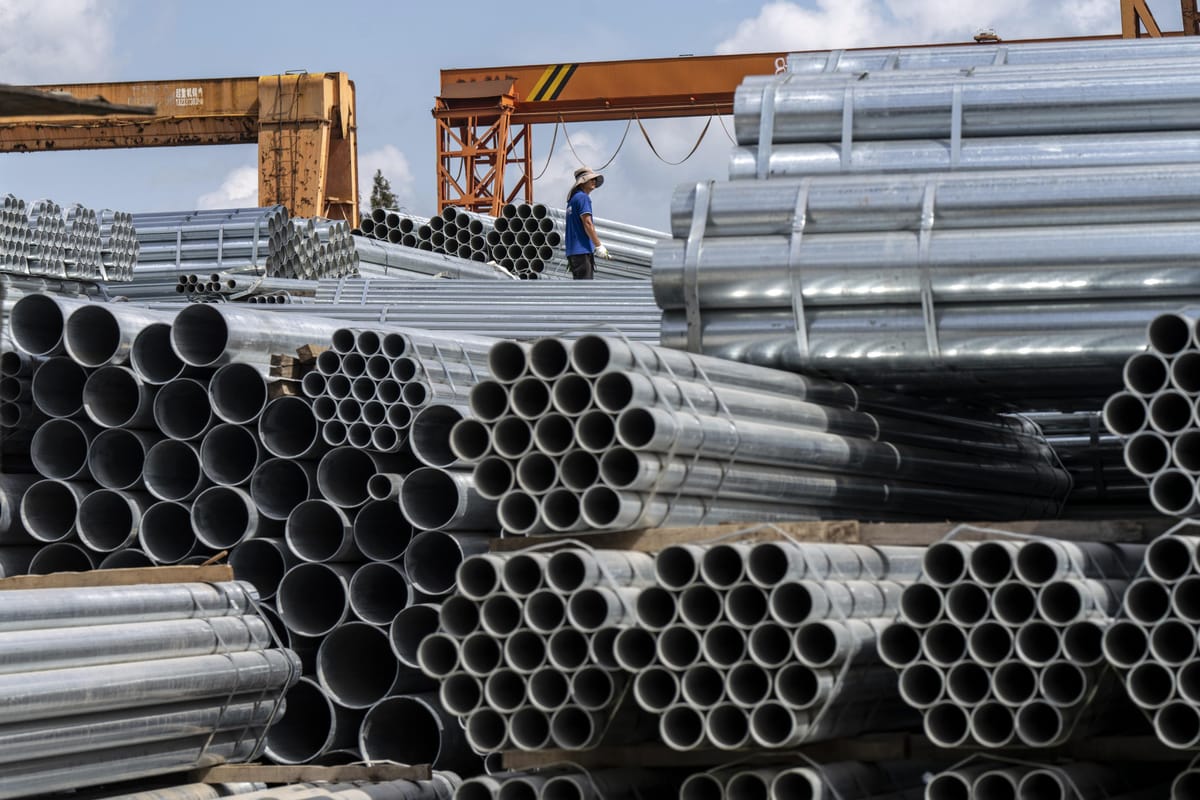Europe Demands Action: US Accused of Stalling on Major Trade Agreement

EU Pushes US to Deliver on July Trade Deal
Europe Demands Immediate Action on Steel Tariffs and Key Exports
Brussels is preparing for a tense diplomatic showdown. European Union ministers are set to press the United States to fully honor the July EU-US trade agreement — including a demand that Washington cut steep tariffs on EU steel and remove duties on major European exports such as wine and spirits.
The message is clear: Europe believes the United States is dragging its feet, and the clock is ticking on a deal that both sides once celebrated as a reset in transatlantic trade relations.
On Monday, EU trade ministers will deliver this message directly to two of the most powerful American trade officials, Commerce Secretary Howard Lutnick and U.S. Trade Representative Jamieson Greer, during their first official visit to Brussels since taking office.
A High-Stakes Meeting in Brussels
EU Ministers Ready to Confront Rising US Tariffs
Lutnick and Greer are attending a 90-minute lunch meeting with EU ministers, where discussions are expected to be blunt. While Washington has expressed frustration with Europe’s slower-than-expected implementation of parts of the deal, EU diplomats argue that the United States is equally failing to deliver on its promises.
The original agreement, reached in late July, was meant to cool years of escalating trade tensions. Under that deal:
- The US set standard 15% tariffs on most EU goods
- The EU agreed to remove many of its tariffs on American imports
But Europe’s tariff rollbacks require approval from both the European Parliament and all EU governments — a bureaucratic process unlikely to finish before March or April. Brussels insists this timeline was clear from the start, but U.S. officials are reportedly growing impatient.
What the EU wants now is simple: progress from Washington on several issues that were supposed to move forward immediately, particularly when it comes to steel and aluminum.
Steel and Aluminum at the Center of Trade Tensions
Europe Frustrated Over 50% US Tariffs on Critical Materials
One of the EU’s top complaints is the United States’ aggressive tariffs on European steel and aluminum. Washington currently applies a 50% tariff on these metals, and since mid-August, has expanded this to include the metal content of 407 derivative products — everything from refrigerators to motorcycles.
Even more troubling to EU diplomats, the U.S. may add additional products to this list as soon as next month.
Officials warn that these moves undermine the very essence of the July deal — a deal that was supposed to ease friction, not escalate it.
“We’re at a delicate moment,” said one EU diplomat. “The U.S. is looking for reasons to criticize the EU as we are trying to get them to work on steel and other unresolved matters.”
The concern is serious: if both sides keep expanding tariffs, the July agreement could unravel from within.
EU Wants Fairer Treatment for Key Export Goods
Wine, Spirits, Olives, and Pasta on the Negotiating Table
Beyond steel, Europe is fighting for more of its products to return to the low, pre-Trump era tariff levels. These include major exports like:
- Wine
- Spirits
- Olives
- Pasta
Industry groups across Europe have warned that continued tariffs on these goods hurt both producers and consumers, especially at a time when inflation remains high and supply chains continue to recover from the pandemic.
By pointing to these product categories, EU ministers hope to remind Washington that tariff fairness was a core part of the July agreement — and that U.S. markets stand to benefit from cheaper, more diverse imports.
Broader Cooperation Still on the Table
EU Calls for Joint Efforts on Energy, Cars, and China’s Export Controls
Despite the rising tensions, the European Union is signaling its willingness to collaborate on areas where both sides have common interests. EU officials say they are prepared to discuss new avenues of regulatory cooperation, including:
1. Car industry standards
Shared rules could reduce costs for manufacturers on both sides of the Atlantic at a time when electric vehicle policies are rapidly evolving.
2. EU purchases of U.S. energy
Europe continues to increase imports of American natural gas and is open to discussing long-term energy cooperation that boosts security and market stability.
3. Joint response to China’s export restrictions
Beijing’s tightening controls on rare earths, chips, and other critical materials has alarmed both Washington and Brussels. Coordinated strategies could reduce supply chain vulnerabilities.
These shared concerns provide a potential path forward — if both sides are willing to compromise.
A Deal at Risk of Falling Apart
EU Warns That US Tariff Actions Could Undermine Months of Diplomacy
For European diplomats, the situation is becoming urgent. If the United States continues adding tariffs to EU products — or threatens new ones on trucks, critical minerals, wind turbines, and aircraft — the fragile July agreement might collapse under the weight of new disputes.
From the EU’s perspective, Washington must stop escalating penalties and refocus on cooperation. The timing could not be more critical: global trade faces growing disruption from supply chain shifts, geopolitical tensions, and aggressive economic policies from China.
Europe believes that a united front with the United States is essential. But unity requires trust — and right now, that trust is strained.
Why This Matters
The Future of Transatlantic Trade Hangs in the Balance
The EU-US relationship remains one of the most powerful economic partnerships in the world. When functioning smoothly, it generates millions of jobs, trillions in trade, and lasting political stability.
But unresolved disputes over metals, tariffs, and new trade threats could widen the transatlantic divide again at a moment when both sides need each other more than ever.
The coming weeks will determine whether the July agreement becomes a foundation for renewed cooperation — or another missed opportunity.
For now, Europe has made its position clear: the United States must move faster, honor the deal, and rebuild trust.
